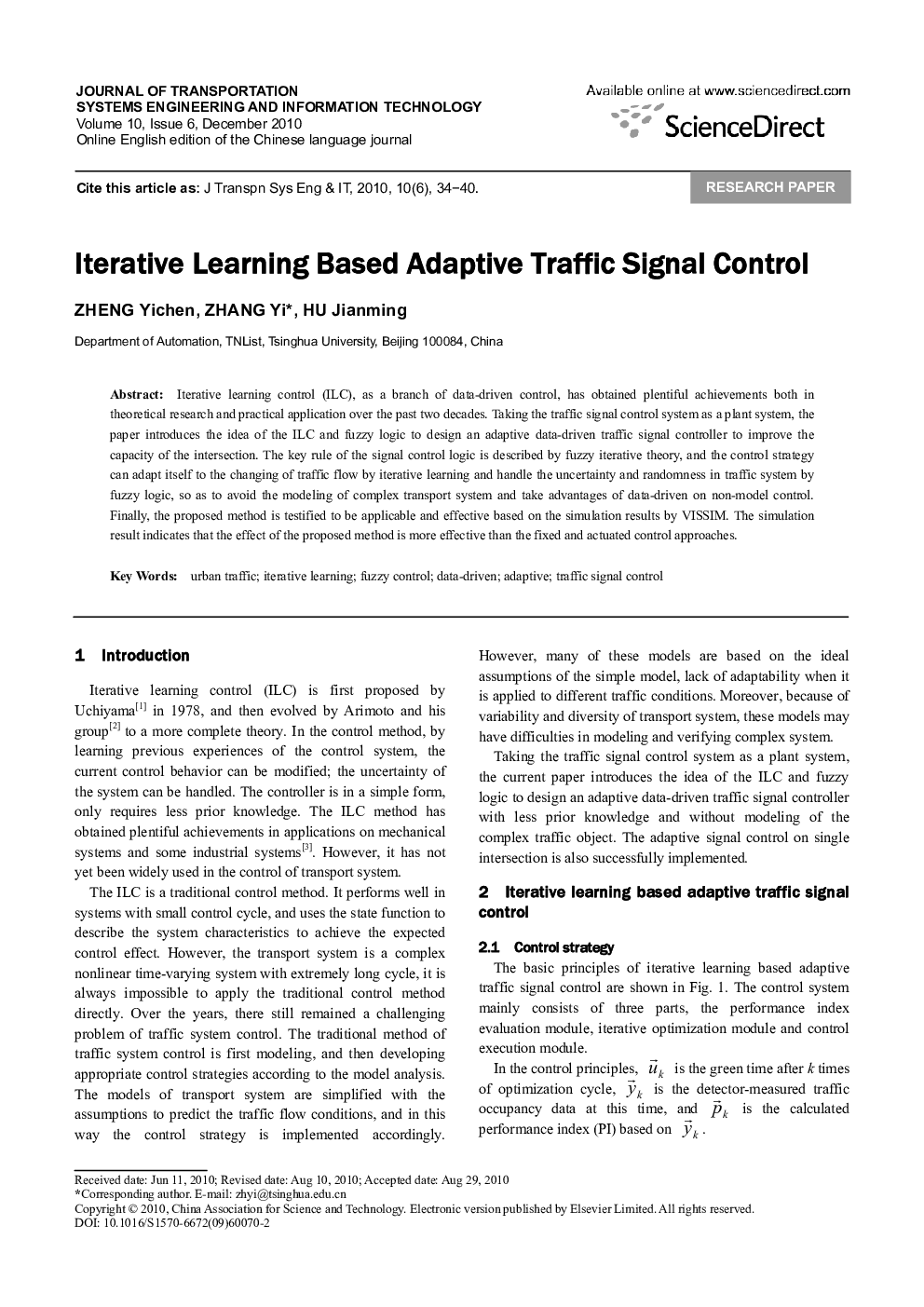| Article ID | Journal | Published Year | Pages | File Type |
|---|---|---|---|---|
| 108565 | Journal of Transportation Systems Engineering and Information Technology | 2010 | 7 Pages |
Iterative learning control (ILC), as a branch of data-driven control, has obtained plentiful achievements both in theoretical research and practical application over the past two decades. Taking the traffic signal control system as a plant system, the paper introduces the idea of the ILC and fuzzy logic to design an adaptive data-driven traffic signal controller to improve the capacity of the intersection. The key rule of the signal control logic is described by fuzzy iterative theory, and the control strategy can adapt itself to the changing of traffic flow by iterative learning and handle the uncertainty and randomness in traffic system by fuzzy logic, so as to avoid the modeling of complex transport system and take advantages of data-driven on non-model control. Finally, the proposed method is testified to be applicable and effective based on the simulation results by VISSIM. The simulation result indicates that the effect of the proposed method is more effective than the fixed and actuated control approaches.
摘 要迭代学习控制作为数据驱动控制的一个分支,经历二十多年的发展,无论在理论研究,还是在实际应用上都取得了丰硕成果。本文以交通信号系统为被控对象,利用迭代学习控制和模糊理论的核心思想,设计基于数据驱动的信号交叉口自适应控制器,使交叉口的通行能力得到显著提升。信号控制的关键规则采用模糊迭代理论,通过迭代学习使得信号控制策略适应交通流的不断变化,通过模糊理论处理交通系统中的不确定性和随机性,从而避免对复杂交通系统的建模,发挥了数据驱动的无模型控制优势。最后,使用基于VISSIM的仿真平台对算法的有效性和实用性进行验证。仿真结果表明,基于迭代学习自适应交通信号控制方法的控制效果优于定时控制和感应控制。
